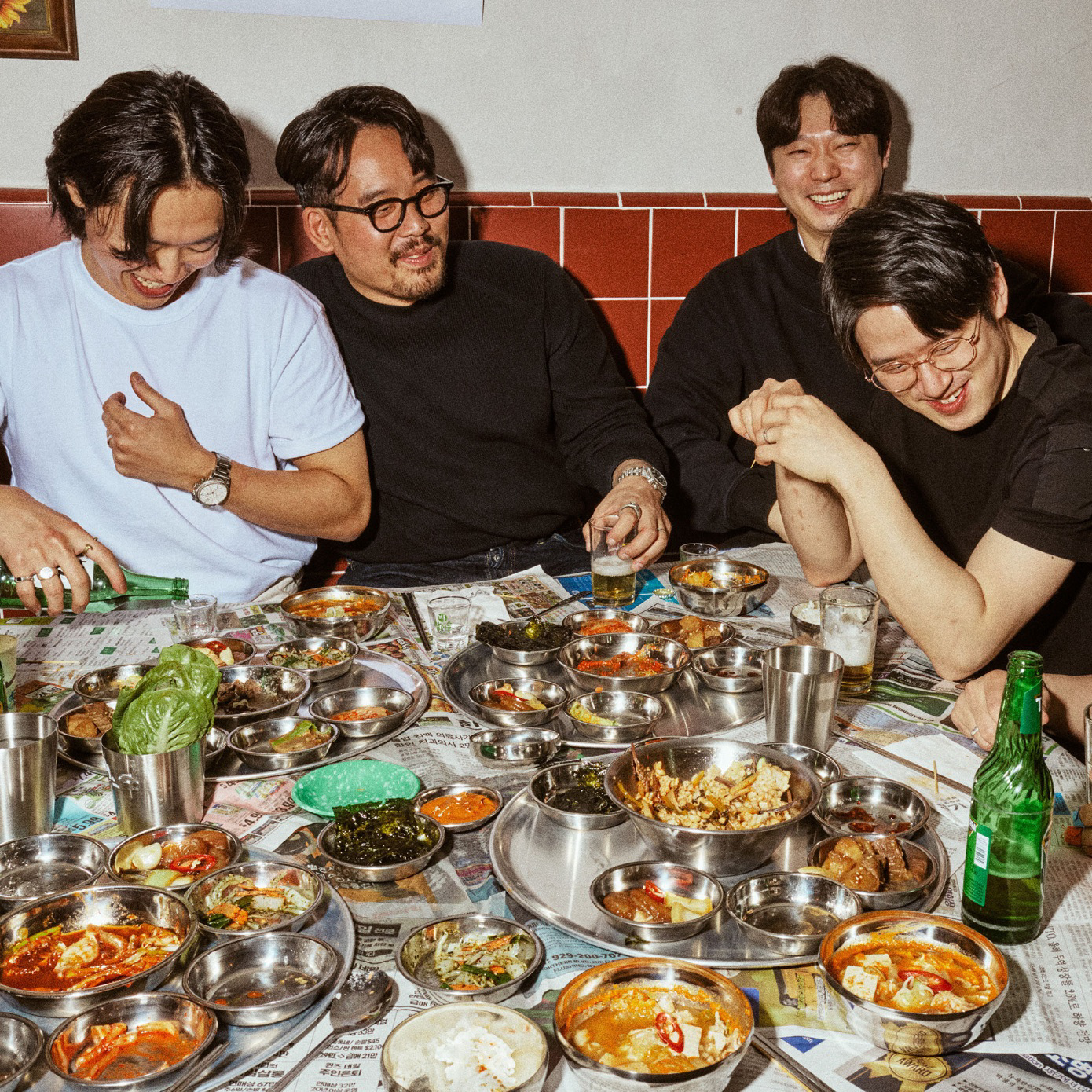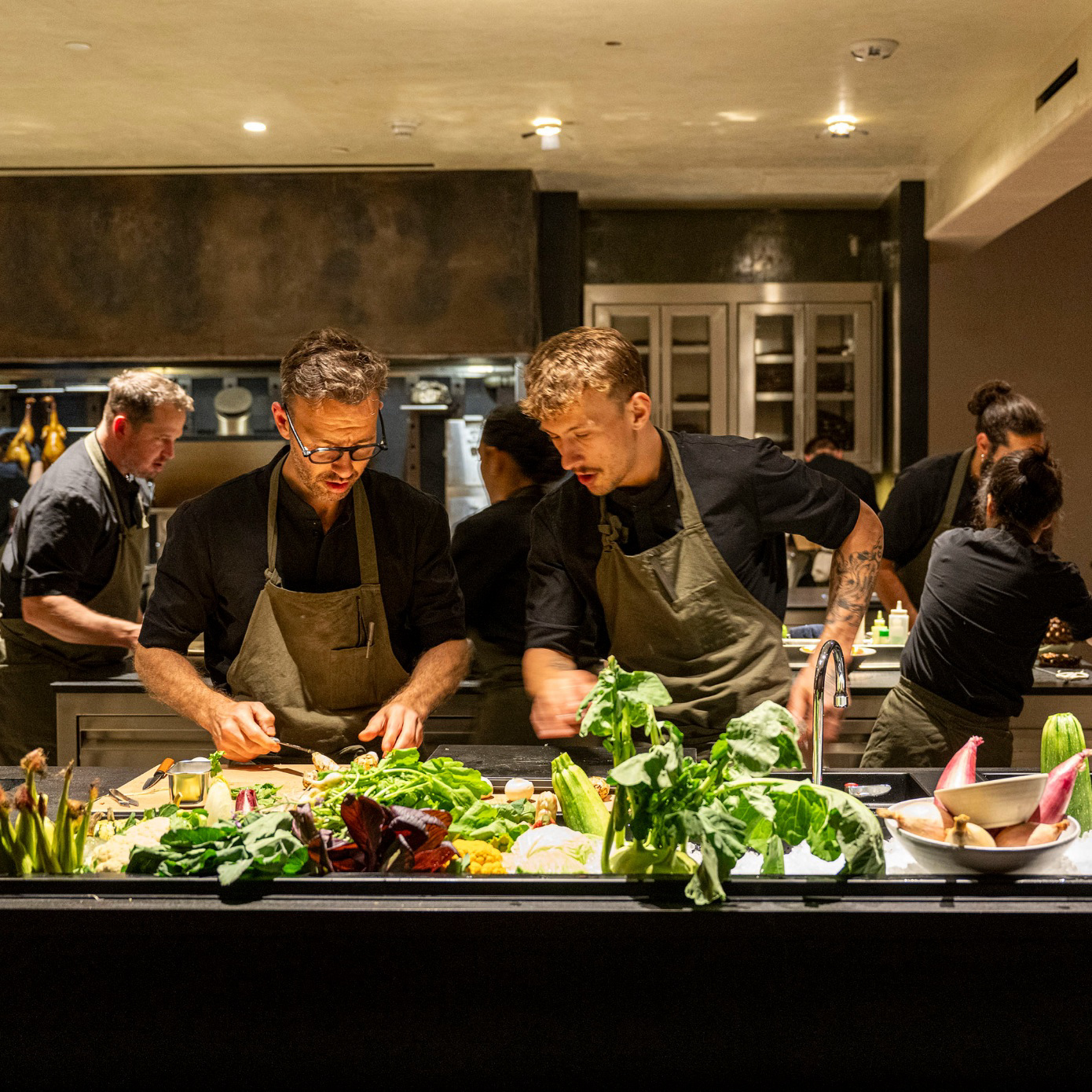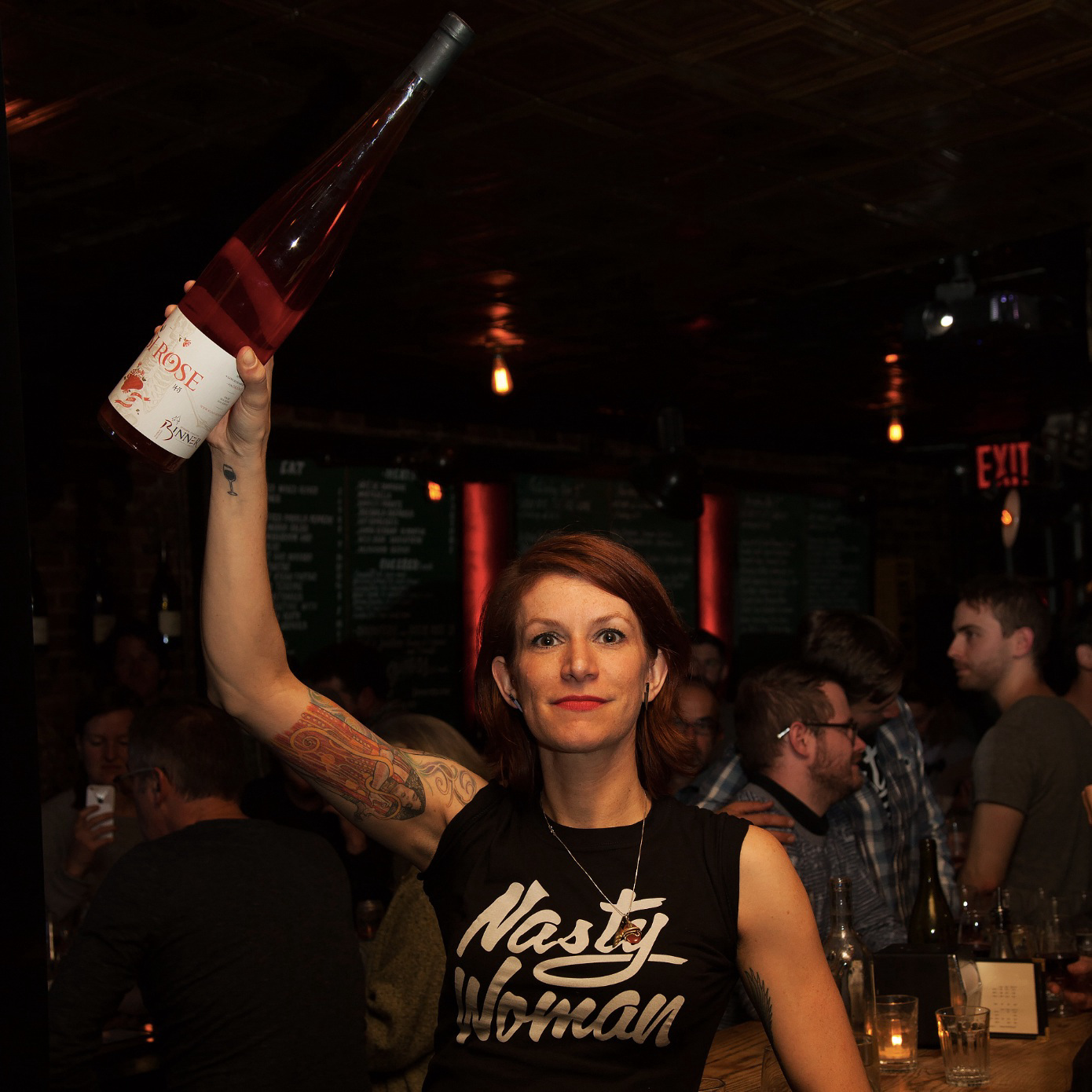Food lovers in Los Angeles (or simply food lovers on Instagram) are likely familiar with the mouth-watering image of tiny bowls filled with fermented labneh, sumac-dusted jammy eggs, and shiny, jagged cucumbers. These platters are part of what's made Kismet, the vegetable-forward, Californian and Mediterranean-inspired Los Angeles restaurant founded by Sara Kramer and Sarah Hymanson in 2017, a destination for locals and tourists alike. Since then, Kramer and Hymanson have expanded their empire, opening three fast-casual restaurants called Kismet Rotisserie around the city.
Today, they are releasing a new venture into the world: their first cookbook. KISMET: Bright, Fresh, Vegetable-Loving Recipes aims to bring the ethos and flavors from their beloved restaurants to the home cook. CULTURED spoke to the dynamic duo on the eve of the book’s release about the long-gestating project, how they balanced it with their demanding day jobs, and which vegetables remain underrated.
CULTURED: Where are you, and what’s in your system?
Sara Kramer: I just made myself a cup of green tea, and I've eaten half an apple—something called a cosmic crisp.
Sarah Hymanson: Embarrassingly, I've had nothing yet. I have some watercress soup that I want to heat up.
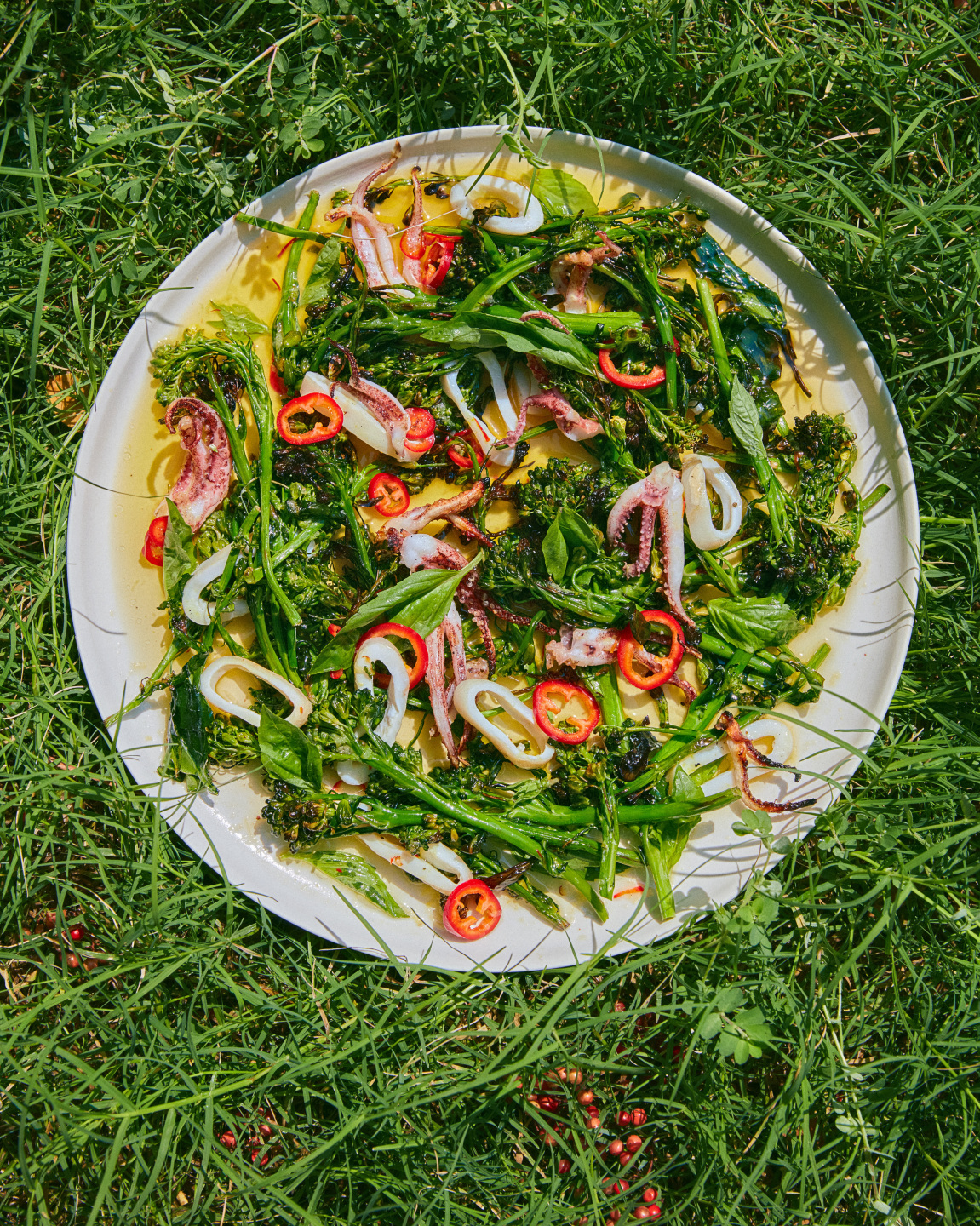
CULTURED: You met each other over 10 years ago in New York, moved to Los Angeles together, and opened your first spot in 2015. You've worked in so many different capacities with each other—opening restaurants, running the restaurants. What was different about working on a cookbook together? What did you learn about each other?
Sara Kramer: It revealed that I liked the process even more than I expected to. That's saying a lot considering how busy we are and how big a project this was. It helps that we have so much experience working together in so many different capacities. It felt relatively natural in terms of the roles that we both played; it mirrored our roles in our business relationship quite a bit.
Hymanson: I would be the one physically cooking and Sara would be writing, and we'd be talking about what we are doing and what we wanted to say. I was a little bit more technical recipe focused and Sara was more writing focused.
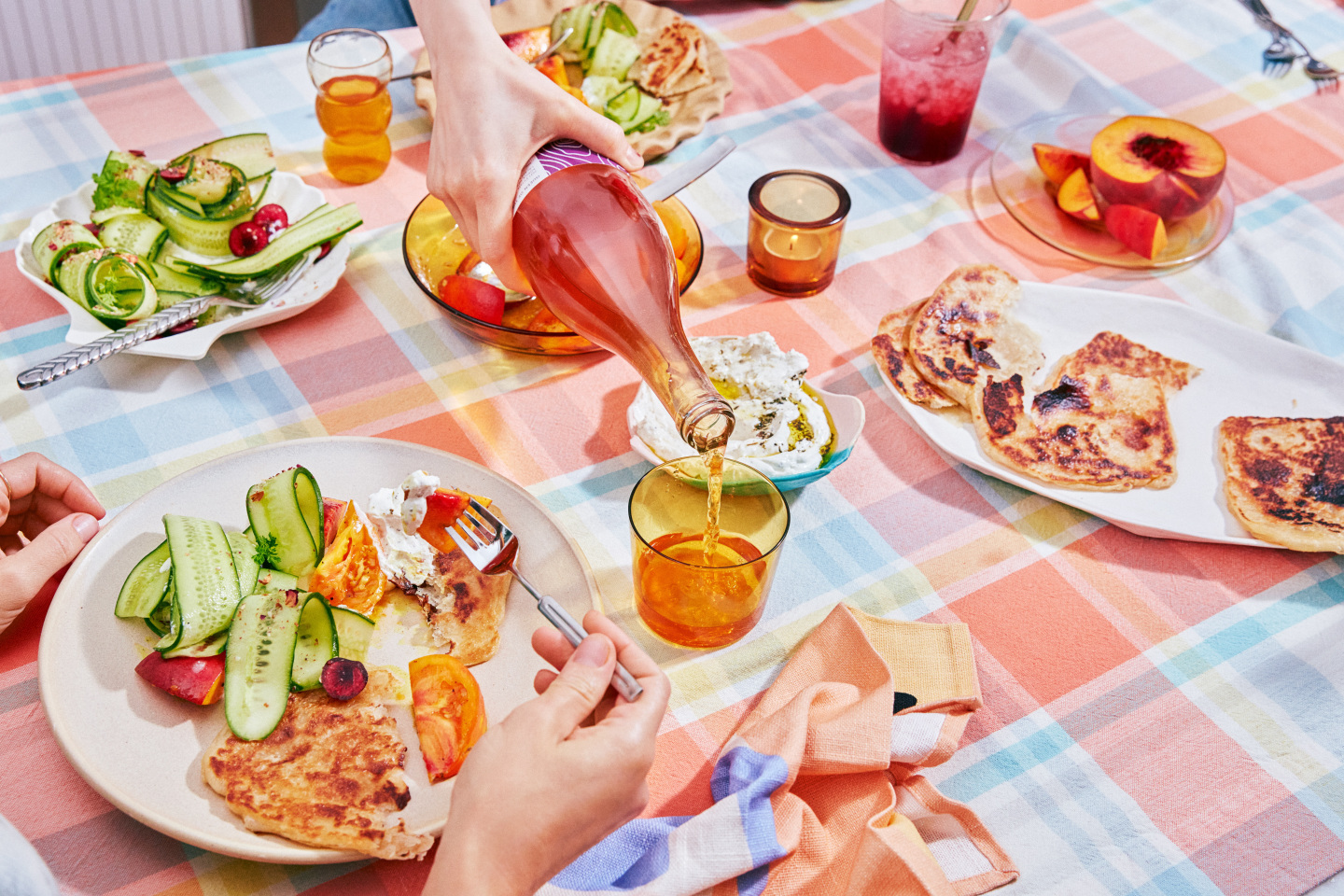
CULTURED: A lot of the recipes are home-cook adaptations of restaurant dishes. What did the development process look like?
Kramer: We did it during the day, two or three times a week. A lot of the recipes did come from work we had previously done in the restaurants. We also came up with a lot of new ideas for the book because some things that we've done in the restaurants don't necessarily translate great for what we wanted to do in the book. We don't often get the opportunity to just brainstorm and work on projects creatively, given the demand on us from an administrative, HR, business-running standpoint.
CULTURED: This project started even before the pandemic, so it's been a long time in the works. How did you decide to write and publish a cookbook in the first place?
Kramer: We hadn't put together a proposal or anything. A publisher approached us and that was exciting because we were thinking about a book anyway. Had we planned it, I think we would have waited longer.
Hymanson: The pandemic helped us write a book that was more useful to people. It's not necessary for us to have a book that is this representation of what we've done. We really just wanted the book to be used by people at home who've never eaten at Kismet, people who don't know who we are.
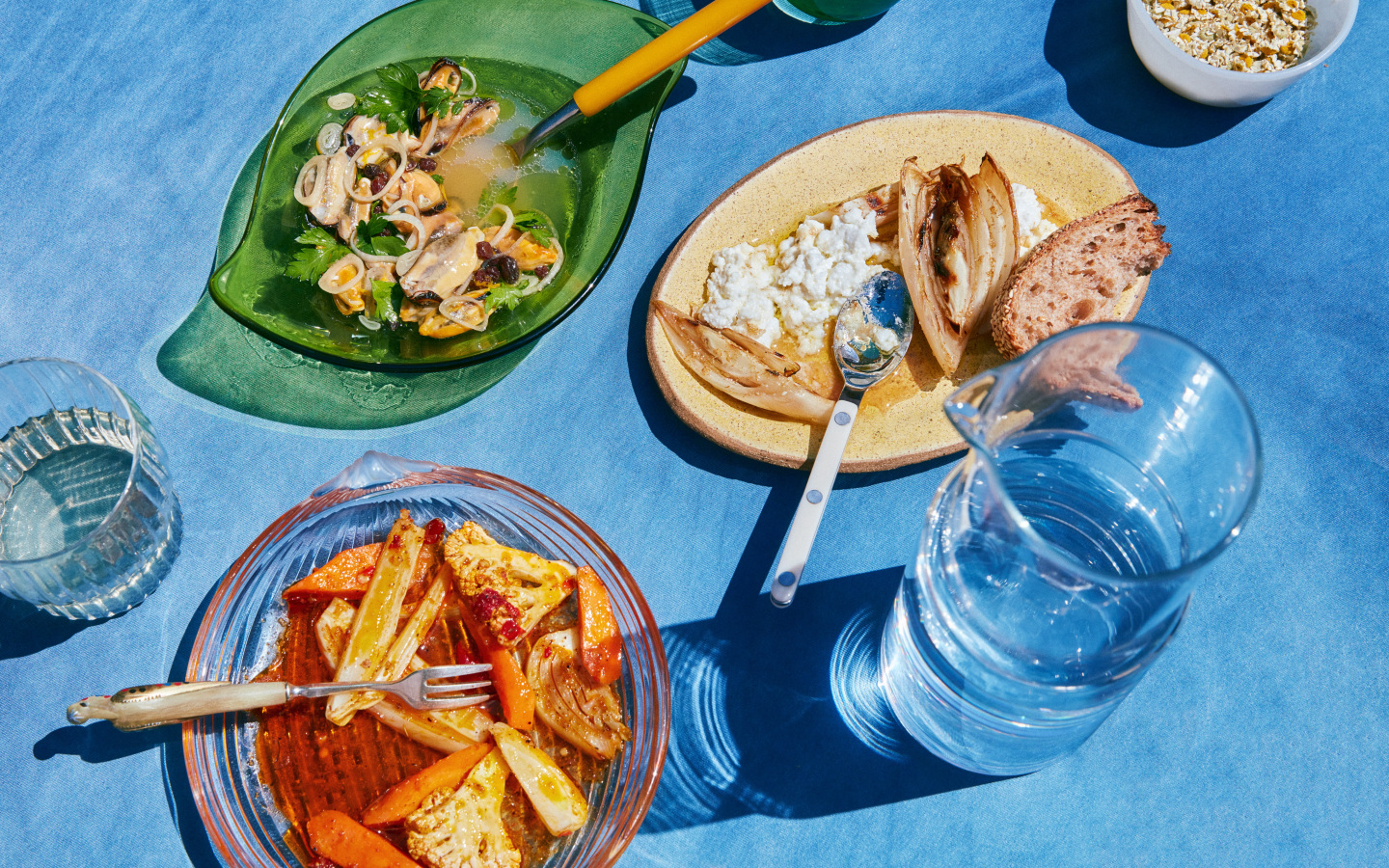
CULTURED: What did you do practically to make it the most useful book possible?
Hymanson: Limit our ingredients.
Kramer: We also really tried to simplify the techniques and translate them to home cooking equipment, which is so different from restaurant cooking equipment.
Hymanson: Sometimes cookbooks can be written very technically, which I appreciate, but can be confusing for the reader. We want to be a restaurant cookbook that is not a restaurant cookbook. And there are not a lot of those out there.
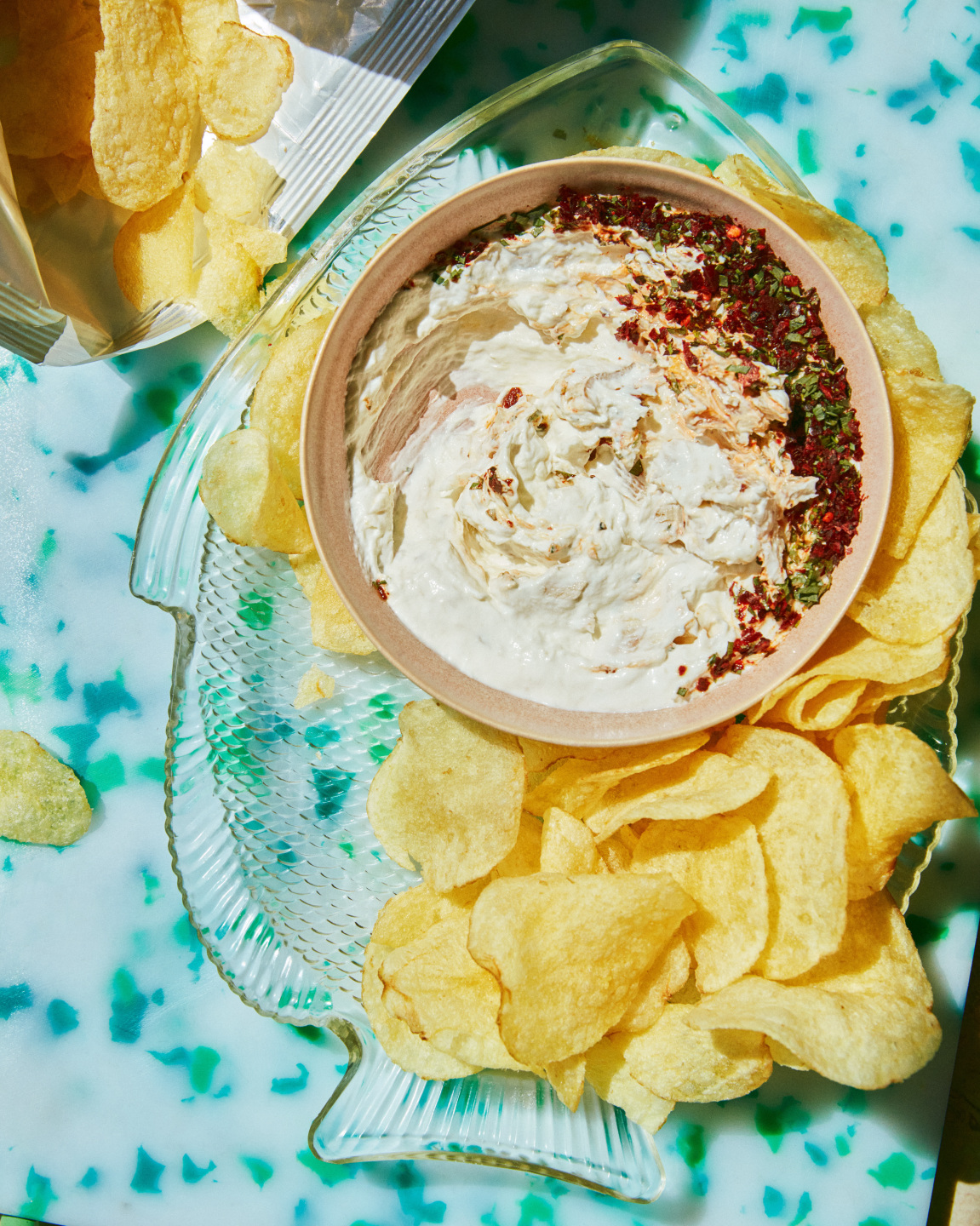
CULTURED: What do you want to see more of in the LA restaurant scene?
Kramer: The restaurant scene in LA is so great. The only thing that I feel like is lacking is the public's willingness to pay for high-quality ingredients and high-quality cooking because there's such a legacy of cheap, delicious food here. A lot of people are starting to learn that even casual food takes a lot of effort—even responsibly sourced takeout packaging costs a lot of money to the business owner. It’s hard and expensive to run a restaurant and to source things well. People should be willing to pay for it and treat it as a special experience.
Hymanson: LA is really good at embracing the multiculturalism of the cuisine that's available here, but we're still not great at paying for it. It's like one thing to be like, we have amazing Thai food here. It’s another thing to be like, actually this Thai food should be expensive because it has meat and vegetables and people pounding curry paste. And it is just as valuable as this plate of spaghetti. In New York, maybe there are vibe-ier places that also offer alcohol and are designed and there's perceived value [in that]. I think that's a bit problematic.

CULTURED: Time for some rapid-fire questions. Breakfast, lunch, or dinner?
Hymanson: Dinner. I love that dinner can just be my entire night.
Kramer: I'll go with breakfast because I like the reliability of it. It's not as celebratory a meal [as dinner], but it's a nice ritual. I feel like I'm taking care of myself from the get-go. I haven't always done that—I very often had just green tea and an apple.
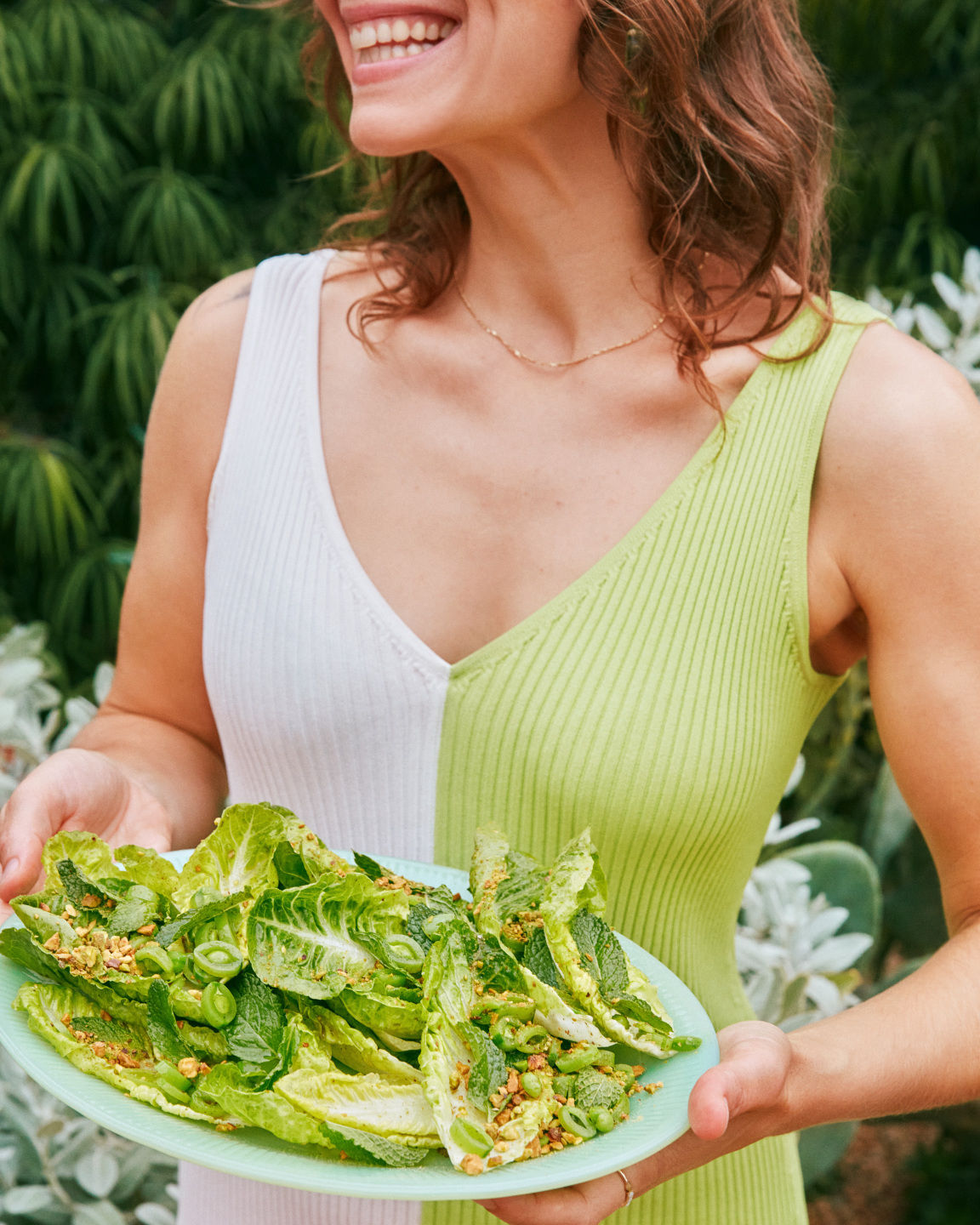
CULTURED: Kismet is known for being very vegetable-forward. Is there a vegetable that you find underrated or overrated?
Kramer: Everybody overdid it on brussels sprouts. They're very delicious, but they're like tiny cabbages. I would take cabbage over brussels sprouts any day. There's so many beautiful varieties, and it's so versatile. It’s one of the most popular vegetables in the entire world but because it's so utilitarian, people don’t necessarily talk about how wonderful they are.
Hymanson: A more obscure vegetable that I absolutely love is chayote. It falls in the summer squash category and I do think summer squash is a little underrated. There’s this idea that it's so plentiful and people grow it in their garden. But I could eat it every day.
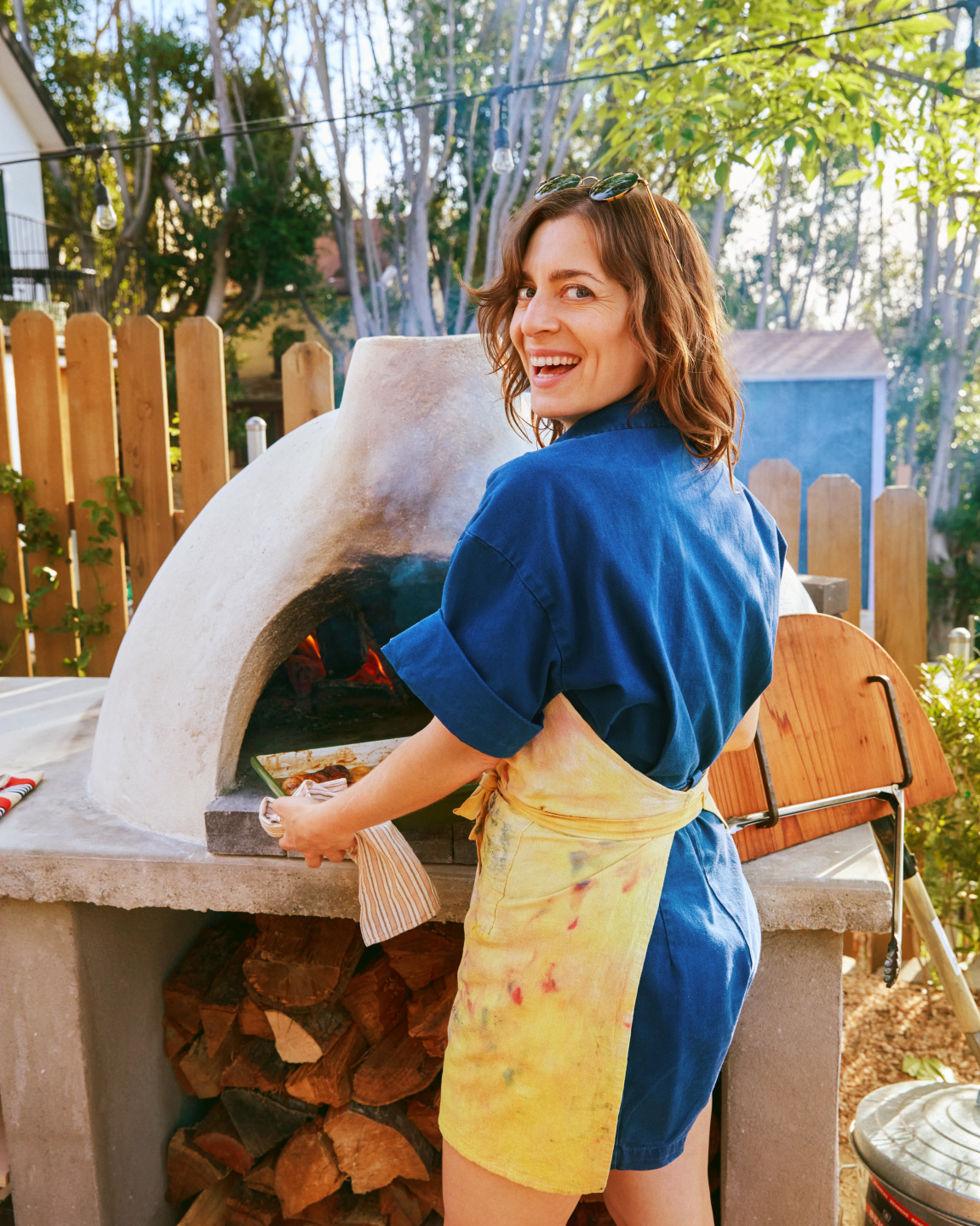
CULTURED: What is your go-to gas station snack?
Kramer: Sunflower seeds, the kind that are in the shell. I like the process. They keep you busy when you're on a road trip.
CULTURED: What about an airplane snack?
Hymanson: It's impossible to find anything good in an airport. I always end up wandering around for like 40 minutes aimlessly to five restaurants all serving $20 egg sandwiches. Then I just end up with a bag of corn nuts.
CULTURED: In your home kitchen, what do you splurge on, and what do you save on?
Hymanson: This is an annoying answer, but I splurge on everything food-related. I splurge on nice vegetables and nice meat from the farmers market. I don't eat very much meat at home and if I'm gonna have it, I definitely splurge on that.
Kramer: I'll spend so much money at farmers markets. I've never bought expensive dishes or glassware—half of what I own is chipped stuff from restaurants that I've brought home and mason jars that I've saved.
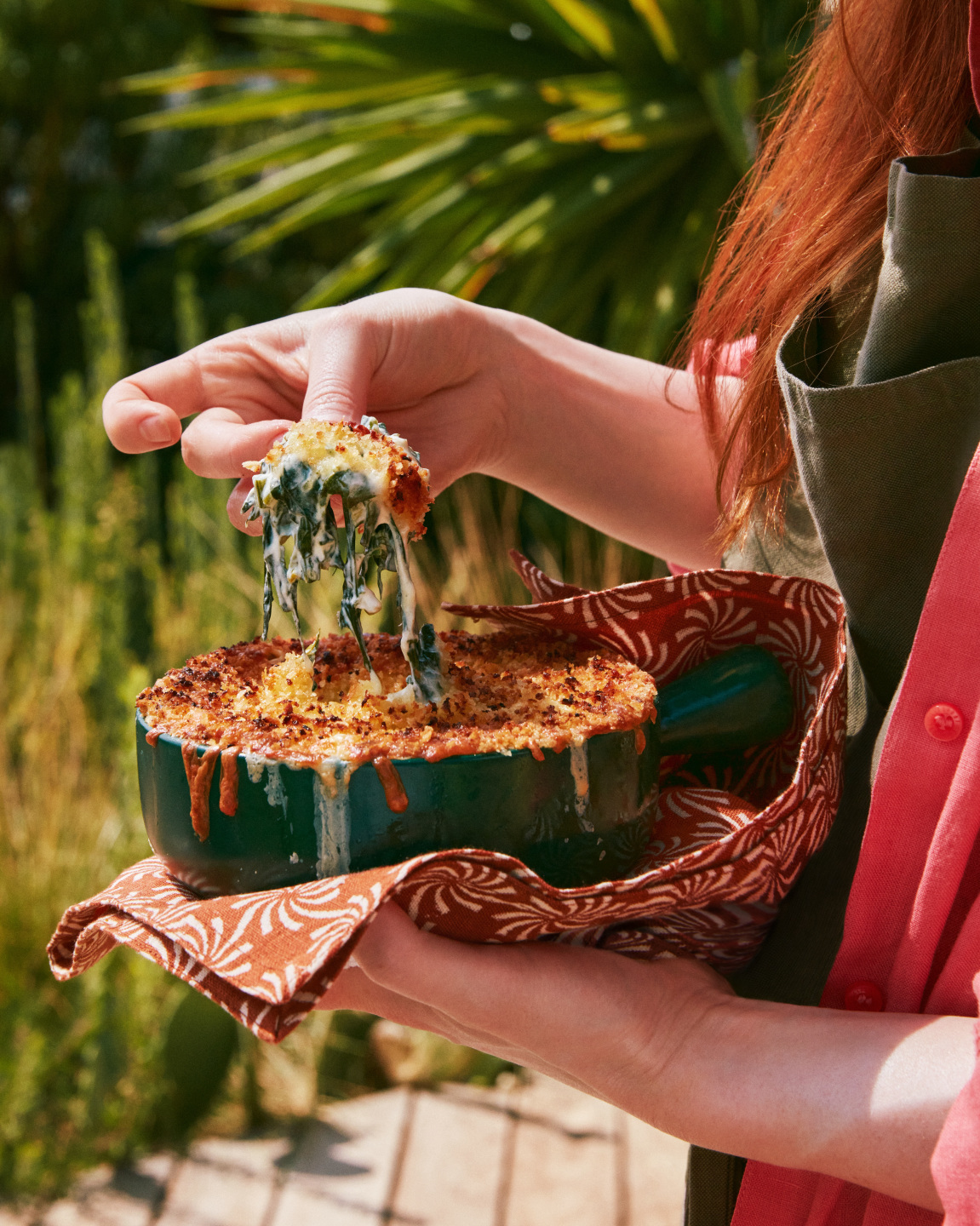
CULTURED: Is there a kitchen etiquette rule you live by?
Kramer: It's pretty generic, but: taste your food. A lot of people follow a recipe. They don't necessarily taste it as they're cooking. If you interact with your food during the process, you'll get to know how to cook better.
CULTURED: You can invite three people, dead or alive, to your dream dinner party. Who are they?
Kramer: This is such a bad one for us. This is a nightmare for us.
Hymanson: I'm so bad at celebrities and names and stuff, so I'm just gonna say my three closest friends from college who don't live near me. I always just wish that they were around.
Kramer: If I got to meet someone who I consider a hero, I just feel like there's so much pressure on that moment. Similar to Sarah's, I don't live in the same city as my family and I'd really just want to have my sister and her child and my boyfriend. That seems like a pretty dream dinner to me.

CULTURED: What is the dish that represents where you're at in your life right now?
Hymanson: The quarter plate from Kismet Rotisserie because it's really occupying my mind.
Kramer: The vegetarian version of the quarter plate. I'm really proud of the fact that we have this fast casual takeout place that does so much that works for plant-based eaters, vegetarians, and whatnot. Before my partner and I knew each other, he would get our veggie sandwich from Kismet Rotisserie. It was a treat meal that he would give himself before going to do a show. So when I introduced the quarter plate for vegetarians, he felt like we did that just for him. It does make me very proud that our chicken restaurant really is mostly a vegetarian restaurant.
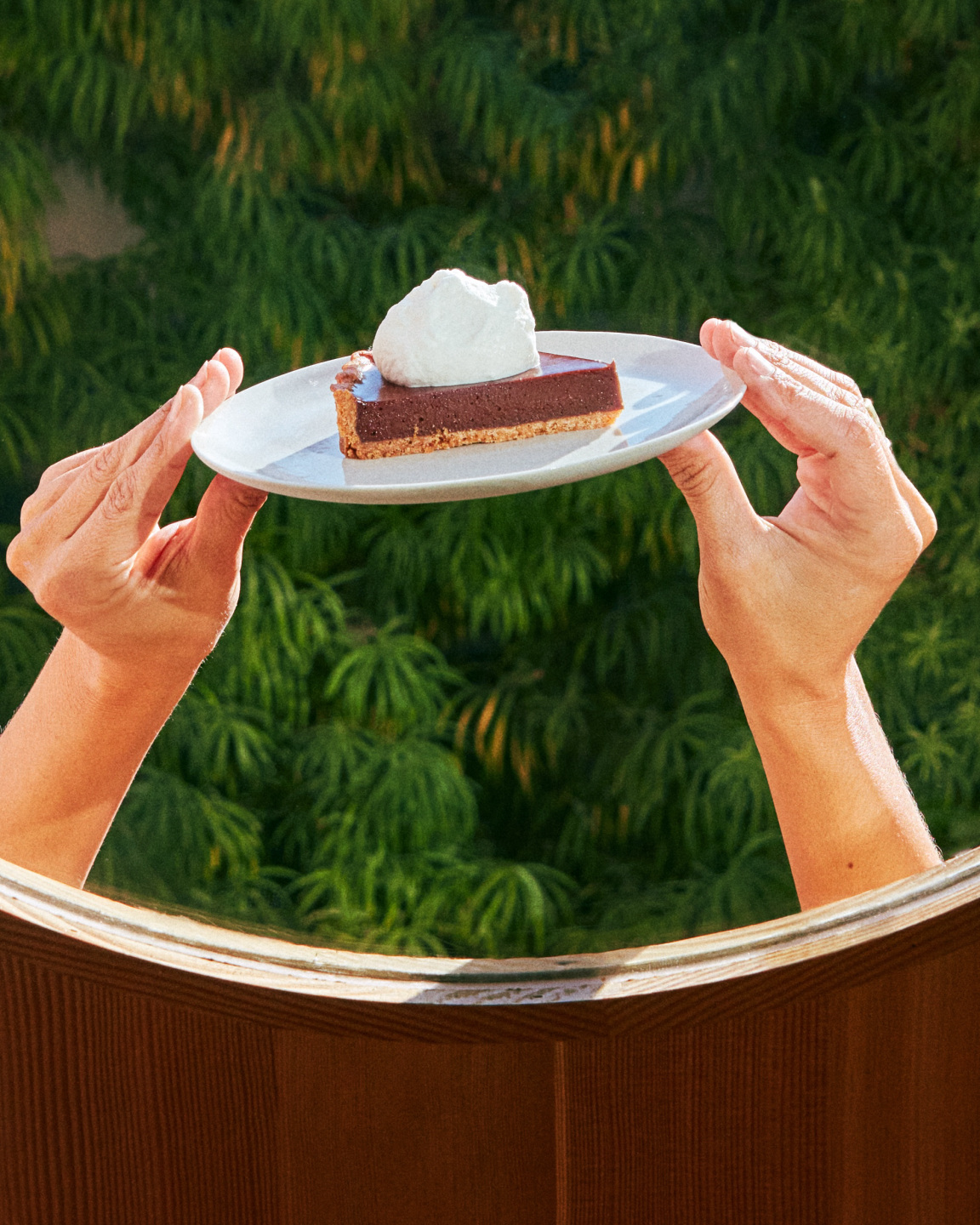
CULTURED: What are you most excited about in the coming months?
Kramer: I am excited about the tour. We’ve hosted a lot of people at our restaurants over the years for events. And it's been a long time since we did events at other people's restaurants. So I think it'll feel really nice and warm for us to be hosted by other people who we love.
Hymanson: I'm excited to go to Chicago, the city I grew up in, and go to Lula Cafe. Jason Hammel, the chef there, was just at Kismet promoting his book.
Kramer: We're going to be releasing some recipe videos so people can cook along with us a bit. That will be really exciting for us, when we start to see people actually cooking from [the book] and enjoying it.
Hymanson: Yeah, it's so wild. We've been restaurant chefs our whole lives and always cooked for other people. I've never seen our food in other people's kitchens.

